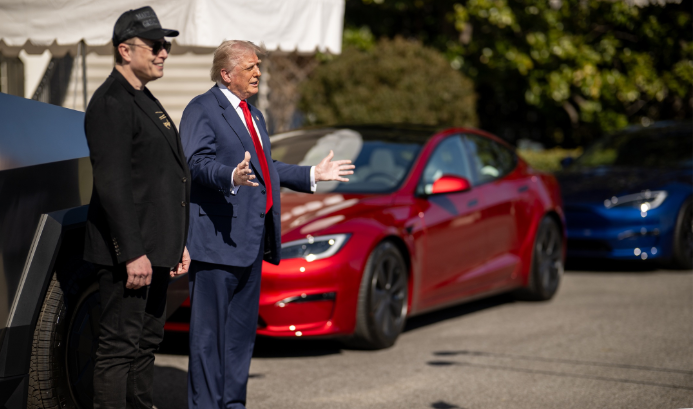Poor Earnings Take a Toll? Musk Says He’ll “Scale Back Government Roles and Refocus on Tesla”
Input
Modified
Musk, Shocked by Q1 Earnings Shock Musk to 'Reduce DOGE-Related Activities Starting May' Tesla's Reputation Damaged Due to Musk's Role in Government"

Elon Musk, CEO of Tesla, announced his decision to return to a more active leadership role at the company starting next month. The move follows growing criticism over his divided focus—balancing Tesla management with his involvement in the Trump administration’s Department of Government Efficiency (DOGE). Analysts view Musk's decision as a response to mounting concerns that Tesla has suffered due to his governmental obligations and diminishing influence within the administration.
Musk’s Government Exit Signals Strategic Pivot
Speaking on Tesla’s Q1 earnings call, Musk said, "The bulk of DOGE’s major work has been completed. Starting next month, I’ll significantly scale back the time I spend on government duties." While he did not confirm an official resignation date, Musk’s "special government employee" term is set to expire at the end of May.
“I’ll still likely dedicate one to two days a week to government matters, depending on what the President needs,” Musk clarified. “But my priority from May onward will be Tesla.”
Musk’s pivot follows Tesla’s disappointing Q1 results, released shortly before the call. The company reported $19.34 billion in revenue and $409 million in net income—down 9% and 71% year-over-year, respectively. Adjusted EPS came in at $0.27, well below analyst expectations of $0.39.
Political Fallout Weighs Heavily on Tesla
Industry analysts say Musk’s entanglement in government work has hurt Tesla’s brand. The Wall Street Journal noted that Musk’s leadership of DOGE—tasked with cutting federal agency budgets—has “tarnished Tesla’s reputation.” According to a CNBC poll, 47% of Americans now view Musk and Tesla negatively, while only 27% hold a favorable opinion.
Tesla has also been the target of widespread protests. Demonstrators have gathered at over 200 Tesla showrooms, some of which have been vandalized or even attacked. The FBI has launched a task force in response to the escalating incidents, yet public pressure continues, with activists urging investors to sell Tesla stock.
Internationally, Musk has faced criticism for appearing to meddle in foreign politics. His meetings with leaders of Germany's far-right AfD and public rebukes of U.K. Prime Minister Keir Starmer sparked outrage across Europe. Tesla’s European sales have plummeted as a result: according to JATO Dynamics, only 16,000 Tesla vehicles were sold across 25 European countries in February, a 44% drop year-over-year—the worst February sales performance in five years.

Cracks Show in White House Influence
Meanwhile, Musk’s influence within the Trump administration appears to be waning. According to The New York Times, his cost-cutting initiatives at federal agencies have stalled amid internal resistance. Moreover, Musk-backed conservative candidates in state elections have lost momentum, with his influence being questioned even among loyalists.
Legal trouble is also mounting. Several lawsuits have been filed against DOGE and Musk by fired federal workers, civil rights organizations, and unions. Plaintiffs argue that Musk, as an unelected official, has overstepped constitutional boundaries. Federal courts have already restricted DOGE’s access to sensitive government databases in some instances. Furthermore, whistleblowers from within DOGE have joined lawsuits, citing internal opposition to Musk’s leadership and decision-making.
Musk’s planned return to Tesla signals a course correction amid growing backlash. While he retains symbolic importance within the Trump administration, the billionaire entrepreneur appears ready to recalibrate his focus on salvaging Tesla’s declining market share and public image.
With pressure mounting from shareholders, consumers, and regulators alike, May could mark the beginning of a new chapter—not just for Tesla, but for Musk’s broader legacy as both an innovator and a political figure.





















